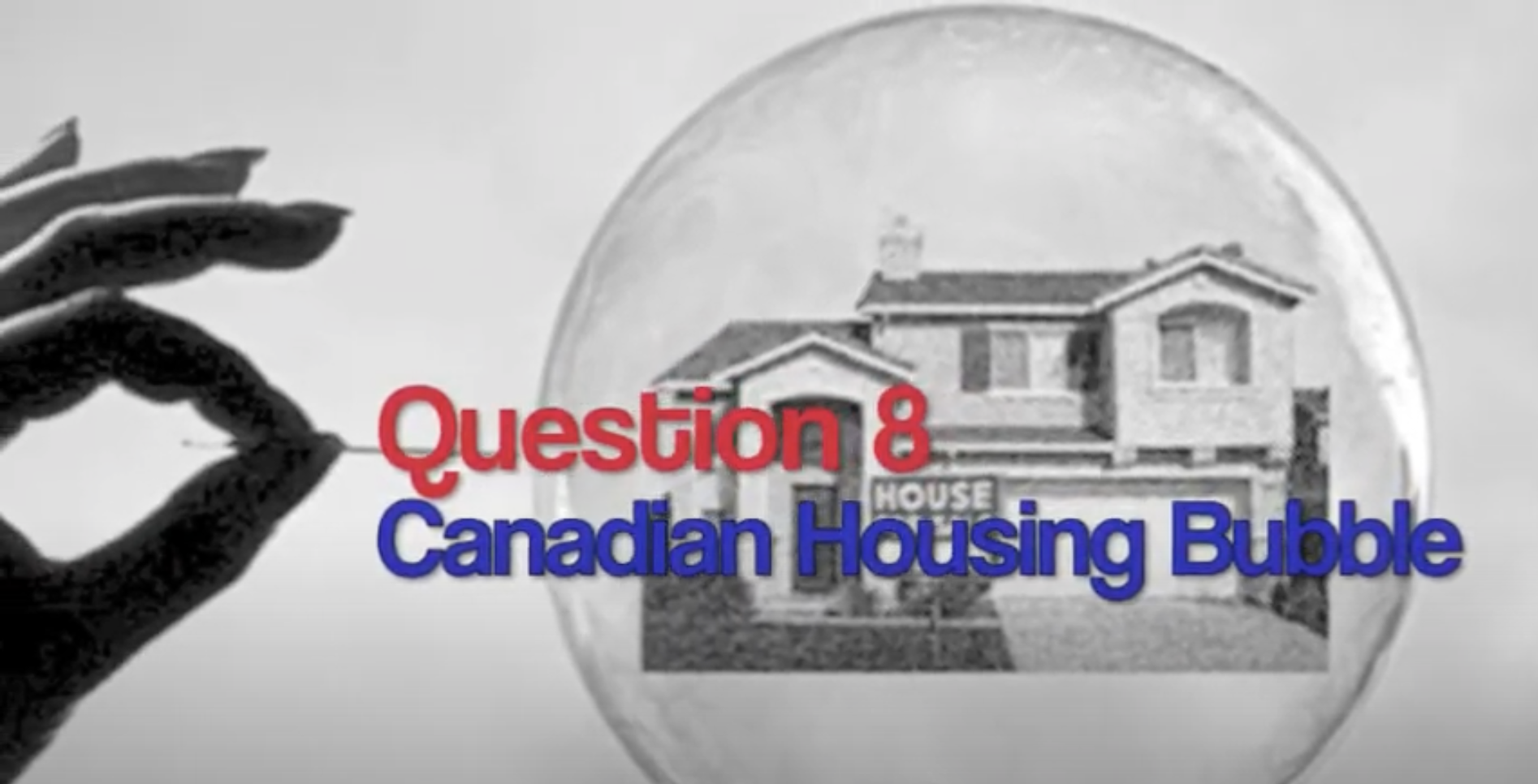Mike McGann, Senior Wealth Advisor at Scotia McLeod, interviews Canso Investment Counsel President John Carswell to discuss the prospect of a Canadian housing bubble and its effects on the marketplace.
The Threat of a Housing Bubble
Ever since the 2008 subprime mortgage crisis, and the subsequent recession that took place in the United States, the prospect of a similar crisis taking place as a result of a Canadian housing bubble has been the topic of intense debate and speculation.
Potential for a Canadian Housing Bubble
Housing Market Discussion Transcript
Mike: John you’ve had very strong view with the U.S. housing crisis and subprime mortgage lending. Maybe you could update us with your views now on the Canadian market.
John: Well Mike if you look at the United States situation you had a lot of signs in their marketplace that their housing market was overvalued. At the same time the Canadian housing market was overvalued by similar measures.
But when the Americans had their subprime mortgage meltdown, people bought houses they couldn’t afford through securitization, the music stopped, and there was no money available so the housing market crashed.
If you look through history there has never been a soft landing in a real estate market. Normally people buy, and they buy, and they buy, and there is leverage involved. So when you have speculators that have borrowed money for rising asset prices, that’s not good.
If in Canada all of the houses and condos that we have constructed were owned by people that were going to live in them; we estimate prices should fall thirty to forty percent to make them affordable for people. Even at that there is probably not enough people to buy the houses.
The problem now becomes all these foreign investors who have been buying condos and houses. Are they coming to Canada because they want to become Canadian and live with us? No. They’re trying to get money out of their home country because of political turmoil. Iranian, Russians, and Chinese who fear regime change are buying six hundred square foot condos as an investment.
Well the cash yield on condos now in the Toronto market is about two percent. If you buy a condo for six hundred dollars you will get something in the vicinity of twelve thousand dollars a year. That’s one thousand dollars a month and that’s not very good for your investment health.
So what we think is going to happen is people say you need a catalyst, rising rate or unemployment. Well you never know what the catalyst is going to be until afterwards, but if houses were overvalued by fifty percent, and the people who live in them can’t afford their own houses, why should the prices be that high?
What we think is going to happen here is the housing market is going to settle back at some point. And what does that mean? Well, thirty percent of our economy is based on housing. If you look at GDP, gross domestic product, the value of all goods and services in the economy, Canada and the United States were both spending three to four percent.
During the credit bubble from 2002 to 2007 we went up to six-seven percent. The Americans have dropped back down to two to three percent, while we’ve increased. So the problem now becomes ‘do we need all these houses’? Well, I’d suggest to people living in a four thousand square foot house, because they got the biggest mortgage and the biggest house as an investment, that they might have trouble selling it if there is not someone else who wants to have an investment.
Is a Canadian Housing Bubble Inevitable?
So how does it happen and when does it happen? We don’t know. But one of the reasons we have such a low weight in Canadian financial stocks, and people exposed to Canadian consumers, is that if you have the most levered consumers in the world, and they borrowed the most and have the least ability to service their debt, at some point things won’t work out for them.





